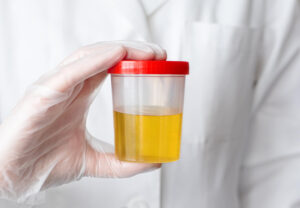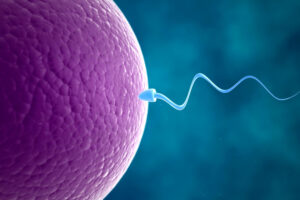Sperm health plays a vital role in fertility and directly influences a couple’s chance of conceiving. Issues such as low sperm count and watery sperm are common challenges for men striving to become parents. By understanding the root causes of these problems, couples can make well-informed decisions on their fertility journey. In this blog post, we’ll delve into the factors contributing to low sperm count and watery sperm, and explore how low sperm count and motility treatment in India is rapidly advancing to offer promising solutions.
Understanding the Terms
What is Low Sperm Count?
Low sperm count, or oligospermia, is defined as having fewer than 15 million sperm per milliliter of semen. A lower count can significantly reduce the likelihood of successful fertilization, impacting a couple’s ability to conceive naturally.
What is a Watery Sperm?
Watery sperm refers to semen that is less viscous than normal. Healthy semen should be thick and gel-like initially, then liquefy after a few minutes. Watery sperm can indicate potential issues with sperm production or quality.
Causes of Low Sperm Count
Medical Conditions
Hormonal Imbalances
Hormonal imbalances, such as low levels of testosterone or abnormalities in other hormones like follicle-stimulating hormone (FSH), can hinder sperm production. Conditions such as hypogonadism or thyroid disorders can disrupt hormonal balance and affect sperm count.
Genetic Factors
Genetic abnormalities, such as Klinefelter syndrome, can lead to a reduced sperm count. This condition results from an extra X chromosome and can impact testicular function.
Infections
Infections such as epididymitis or sexually transmitted infections (STIs) can obstruct the reproductive tract or cause inflammation, leading to a lower sperm count.
Lifestyle Factors
Substance Abuse
Excessive alcohol consumption, smoking, and recreational drug use can negatively impact sperm production and overall sperm health. These substances can impair hormonal balance and damage sperm cells.
Poor Diet and Obesity
A diet lacking essential nutrients or high in processed foods can affect sperm quality. Obesity is also linked to lower sperm counts due to hormonal imbalances and increased body temperature affecting sperm production.
Environmental Factors
Exposure to Toxins
Exposure to environmental toxins like pesticides, heavy metals, and industrial chemicals can adversely affect sperm production. These substances can damage sperm DNA and reduce overall sperm count.
Heat Exposure
Regular exposure to high temperatures, such as from saunas or hot tubs, can impair sperm production. The testicles need to be slightly cooler than the body’s core temperature for optimal sperm production.
Other Miscellaneous Factors
Age
Sperm count and quality generally decline with age. As men get older, their testosterone levels decrease, and they may experience reduced sperm motility and increased sperm abnormalities, which can impact fertility.
Fever
High fevers can temporarily affect sperm production. Elevated body temperature can impair the testicles’ ability to produce sperm effectively, leading to a temporary reduction in sperm count and quality.
Trauma to the Testicles
Injury to the testicles can damage sperm-producing tissue. Such trauma can lead to scarring or inflammation, which may disrupt normal sperm production and affect overall fertility.
Causes of Watery Sperm
Infections
Bacterial infections, prostatitis, and sexually transmitted infections can lead to watery sperm.
Hydration Levels
Inadequate fluid intake can result in less viscous semen. Proper hydration is essential for maintaining healthy semen consistency.
Ejaculatory Disorders
Conditions such as retrograde ejaculation, where semen enters the bladder instead of being expelled through the penis, can lead to a watery appearance of the semen.
Hormonal Imbalances
Similar to low sperm count, imbalances in hormones like testosterone can also affect the consistency of sperm. Proper hormone levels are crucial for maintaining the right semen viscosity.
Chronic illnesses
Long-term health issues, such as diabetes, can impact sperm production and consistency. Managing chronic conditions effectively is important for maintaining optimal sperm health.
Medications
Certain medications can alter semen quality. Drugs such as anabolic steroids, some antibiotics, and medications for high blood pressure or depression can negatively impact sperm count, motility, and overall semen consistency.
Miscellaneous Factors
Age and exposure to toxins can also contribute to watery sperm.
Various Treatment Options for watery sperm
The appropriate treatment for low sperm count or watery sperm depends on various underlying causes, options include :
- Medical Interventions: Depending on the cause, medical treatments may include antibiotics for infections, hormone therapy for hormonal imbalances, or surgery for varicocele.
- Assisted Reproductive Technologies (ART): For couples with severe sperm issues, ART options like intrauterine insemination (IUI) or in vitro fertilization (IVF) can be considered.
- Surgeries: Few surgical options are suggested for individuals like Laparoscopic surgery and percutaneous embolization.
Holistic Considerations
While medical conditions and lifestyle factors play a significant role in sperm health, holistic approaches can also be beneficial.
- Stress Management: Chronic stress can negatively impact fertility. Incorporating stress-reduction techniques like yoga, meditation, or deep breathing can help improve overall well-being.
- Dietary Changes: A healthy diet rich in antioxidants, vitamins, and minerals can support sperm health. Consider incorporating fruits, vegetables, lean proteins, and whole grains into your diet.
- Lifestyle Modifications: Regular exercise, adequate sleep, and avoiding excessive heat exposure can promote optimal sperm production.
- Supplements: Certain supplements, such as zinc and folic acid, may be beneficial for sperm health. However, it’s essential to consult with a healthcare professional before starting any new supplements.
Addressing low sperm count and watery sperm involves understanding their causes and exploring appropriate treatments. A combination of lifestyle changes, medical interventions, and professional guidance can enhance sperm health and improve fertility.
With increasing concerns about infertility, low sperm count, and reduced motility in India, effective treatment has become more crucial. Boon IVF Fertility Center in Hyderabad, India, specializes in diagnosing these issues, identifying their underlying causes, and guiding you toward the most appropriate treatments. Equipped with the best in technology, technique, and expert staff, our approach to holistic treatment ensures our commitment to providing you with the best fertility experience is fulfilled. For personalized advice and tailored solutions, contact Boon IVF’s specialists today and schedule a consultation.


